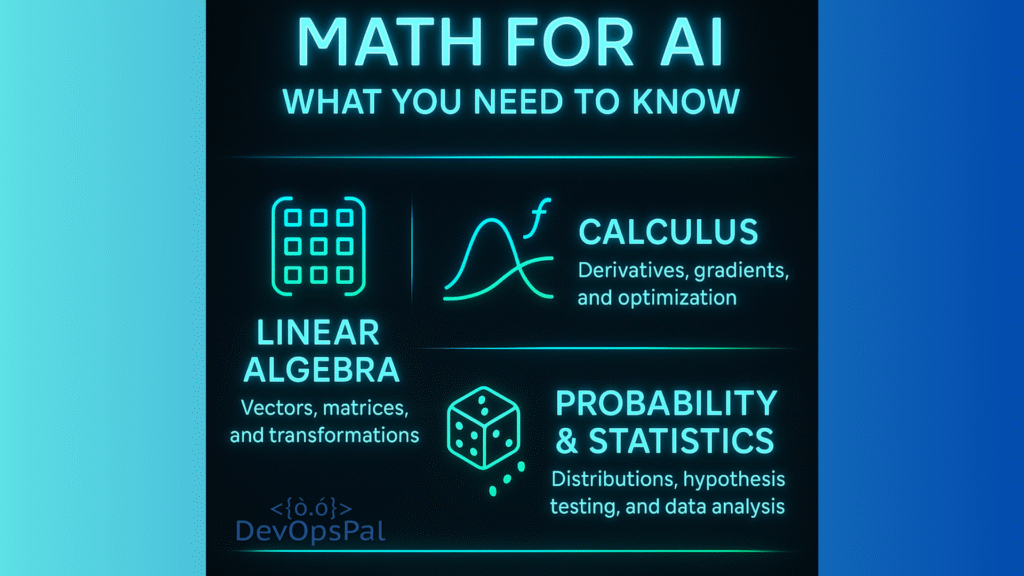Introduction:
Welcome back to the AI Learning Journey! In our previous post, we explored the basics of Artificial Intelligence and its real-world applications. Now, it’s time to dive into the math that underpins AI algorithms. Don’t worry—you don’t need to be a math genius to get started. We’ll cover the essential concepts in a clear and accessible way.
Why Math Matters in AI:
AI and machine learning algorithms rely heavily on mathematical principles. Understanding these concepts will help you:
- Grasp how algorithms work under the hood.
- Fine-tune models for better performance.
- Troubleshoot issues and debug code.
- Stay ahead of the curve as AI evolves.
Essential Math Concepts for AI:
- Linear Algebra:
- Vectors and Matrices: Represent data and perform operations.
- Operations: Addition, subtraction, multiplication, and dot products.
- Applications: Data representation, dimensionality reduction, and image processing.
- Calculus:
- Derivatives: Measure rates of change and optimize functions.
- Gradients: Find the direction of steepest ascent or descent.
- Applications: Training neural networks and optimizing model parameters.
- Probability and Statistics:
- Probability Distributions: Model uncertainty and randomness.
- Hypothesis Testing: Evaluate the significance of results.
- Applications: Data analysis, model evaluation, and decision-making.
Resources and Tools:
- YouTube: Free online courses on linear algebra, calculus, and statistics.
- NumPy: Python library for numerical computing.
- SciPy: Python library for scientific computing.
Hands-On Exercise:
- Install NumPy and SciPy in your Python environment.
- Create a vector and a matrix using NumPy.
- Perform basic operations (addition, subtraction, multiplication) on the vector and matrix.
- Calculate the mean, median, and standard deviation of a dataset using SciPy.
Next Steps:
- Practice the hands-on exercise and explore the resources mentioned above.
- Follow along on social media for more tips, visuals, and updates.
- Share your progress and questions using #AIZeroToHero.
Conclusion:
Math is a fundamental building block of AI. By mastering these essential concepts, you’ll be well-equipped to understand and build powerful AI applications. Stay tuned for our next post, where we’ll dive into Python programming for AI!
